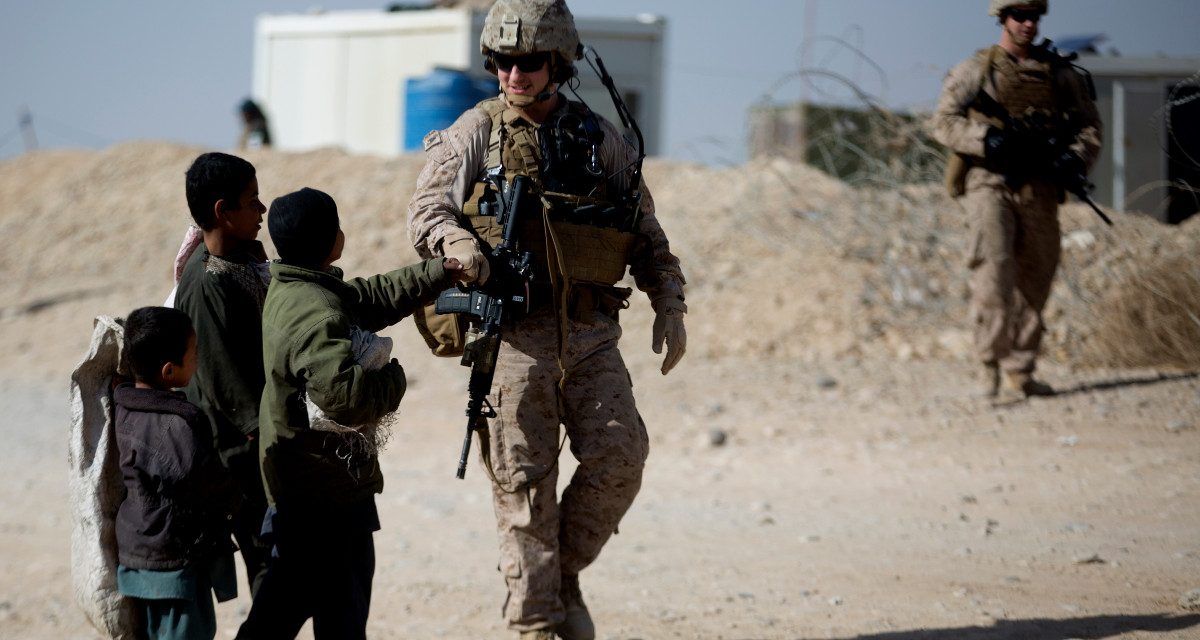Are the US Marines better at counterinsurgency than the US Army? How about the British Army? If so, why, and if not then what else might explain success and failure in different COIN campaigns over time?
In this episode of the Irregular Warfare Podcast, Kyle Atwell and Nick Lopez discuss whether some military organizations are more effective at COIN than others with Dr. Colin Jackson and Dr. Austin Long.
Colin and Austin start by framing where COIN falls in current national security priorities. They then move on to debate whether some military organizations are more effective at COIN than others, what characteristics support learning and influence success in COIN, and what lessons we can derive from recent COIN experiences for how to organize for and fight COIN warfare in the future.
Dr. Colin Jackson is the chair of the Strategic and Operational Research Department at the Naval War College and a US Army Reserve officer. He served as deputy assistant secretary of defense for Afghanistan, Pakistan, and Central Asia (2017–2019), overseeing all strategy, security cooperation, budget oversight, and contingency planning. He also served as the senior DoD representative to the US-Taliban peace talks. He earned his PhD from MIT, where his dissertation focused on organizational learning dysfunction in COIN.
Dr. Austin Long is a policy advisor on the Joint Staff, is a former associate professor at Columbia University’s School of International and Public Affairs, and served as an analyst and advisor to the US military in Iraq (2007–2008) and Afghanistan (2011 and 2013). He is the author of the book The Soul of Armies: Counterinsurgency Doctrine and Military Culture in the US and UK, which motivated this podcast episode.
The Irregular Warfare Podcast is a collaboration between the Modern War Institute and Princeton University’s Empirical Studies of Conflict Project. You can listen to the full episode below, and you can find it and subscribe on Apple Podcasts, Stitcher, Spotify, TuneIn, or your favorite podcast app. And be sure to follow the podcast on Twitter!
Image credit: Sgt. Sean J. Berry, US Marine Corps


You had me hooked and excited at 25:25 regarding the analysis of the reasons why “The Surge” time period worked out well in turning the tide of war in Iraq. I was there, doing those things that not many cared about “Winning Hearts and Minds” and “Using Money as a Weapon”. I was there 6 months before the Surge campaign and 6 months afterwards and the support for Influence Operations and security bubble the surge created, amplified the messaging for a lot of powerful campaigns about nationalism of Iraq and other messaging that helped root out bad actors. NAIL ON THE HEAD at 17:10 “My point is it might have been something in minds of the locals…” and you are absolutely correct and it was measurable and we measured and leverage it effectively…Sentiment analysis techniques using ML, yes, back in 2006, but few know except those I’ve shared my experience with…And feedback loops that used amazing technology that was mothballed shortly after I left in 2007. So your point about Armies forgetting lessons quickly about effect techniques in COIN and instead caulking it up to more muscle & kinetic activity holds back our ability to fully engage effectively in expeditionary COIN. However, not to worry I’m in the right place to share these lessons.
“The Surge” creates a temporary suppression of the symptoms of insurgency. The effects predictably collapsed once once we removed our energy for artificial stability from the Sunni Arab populations energy for conflict It set the conditions for the rise of ISIS. A colonial approach in a globalized world.